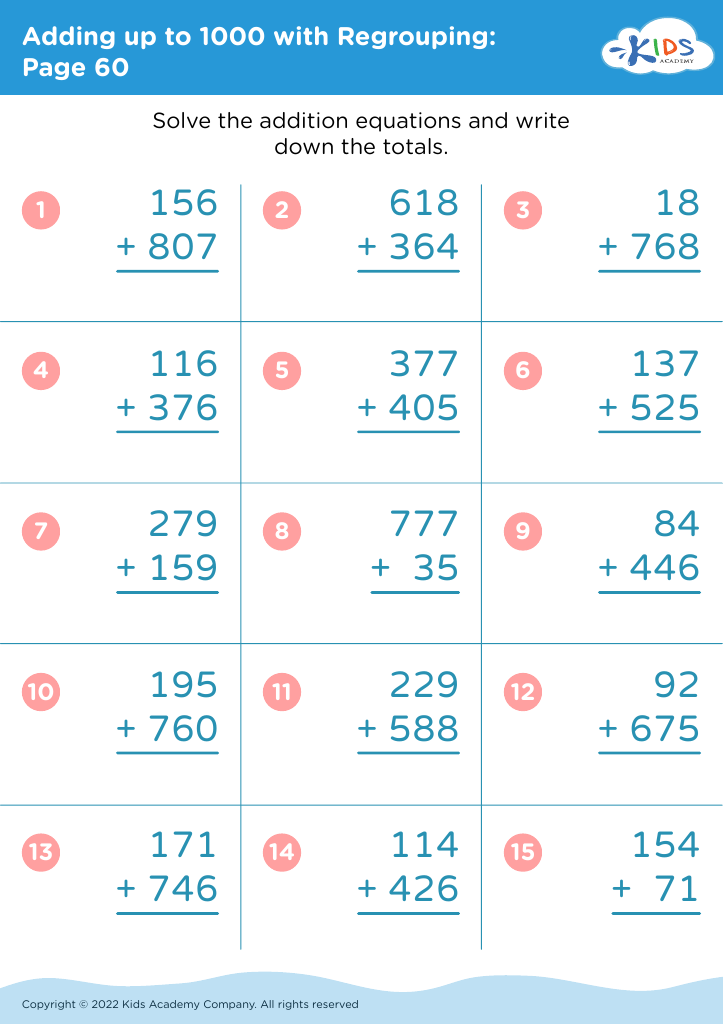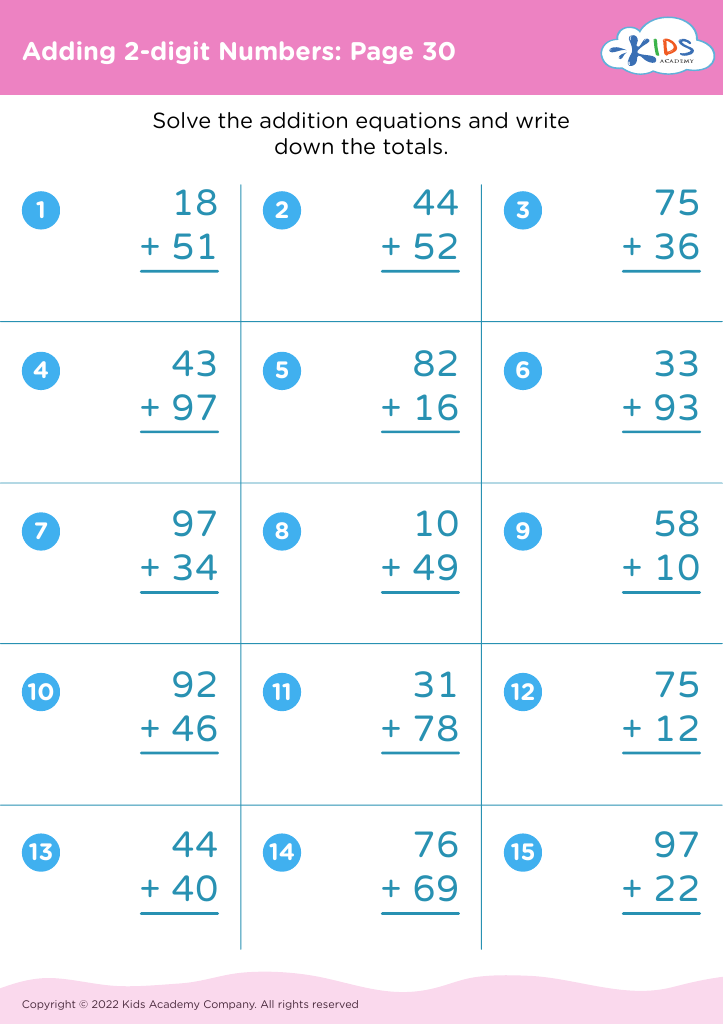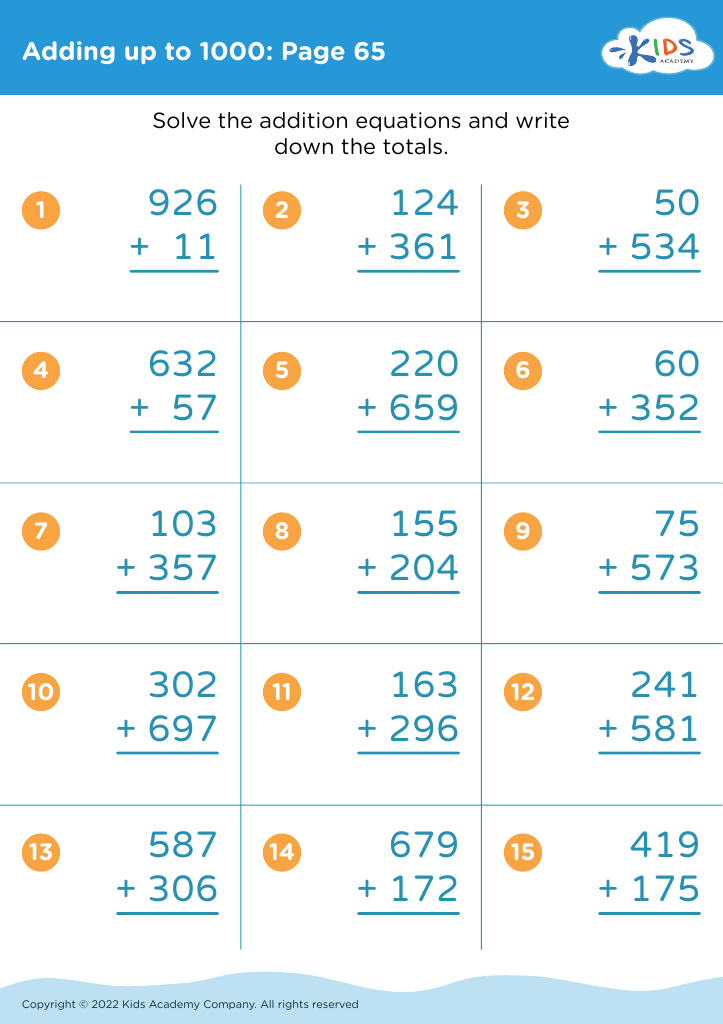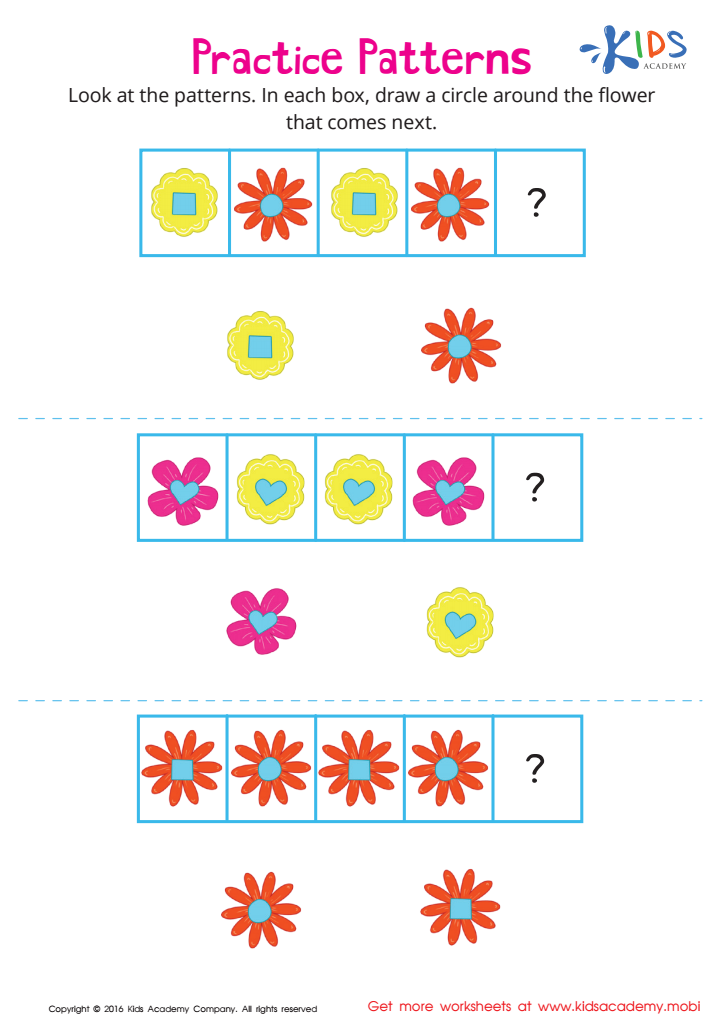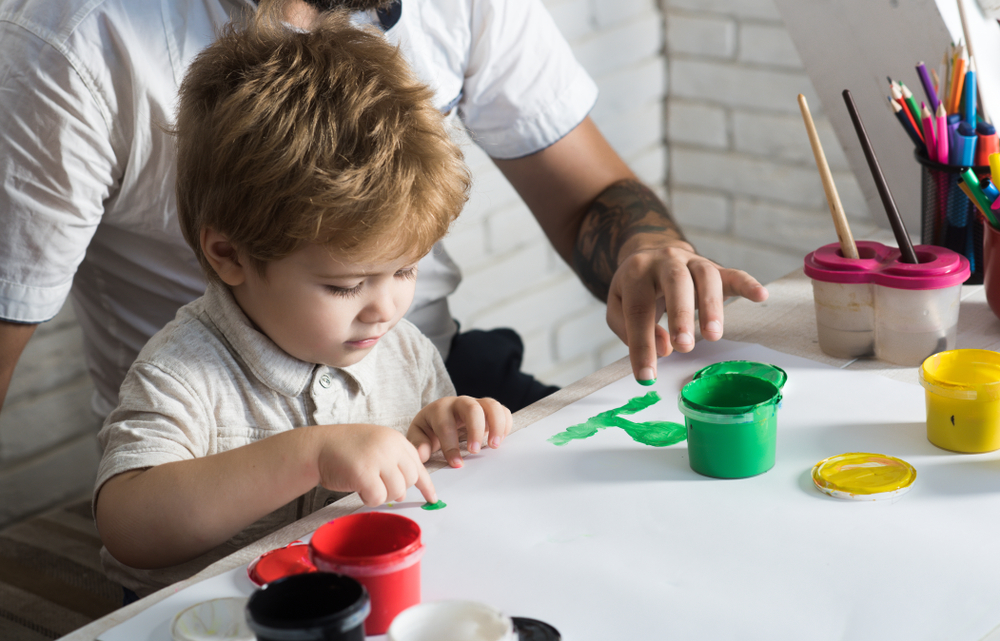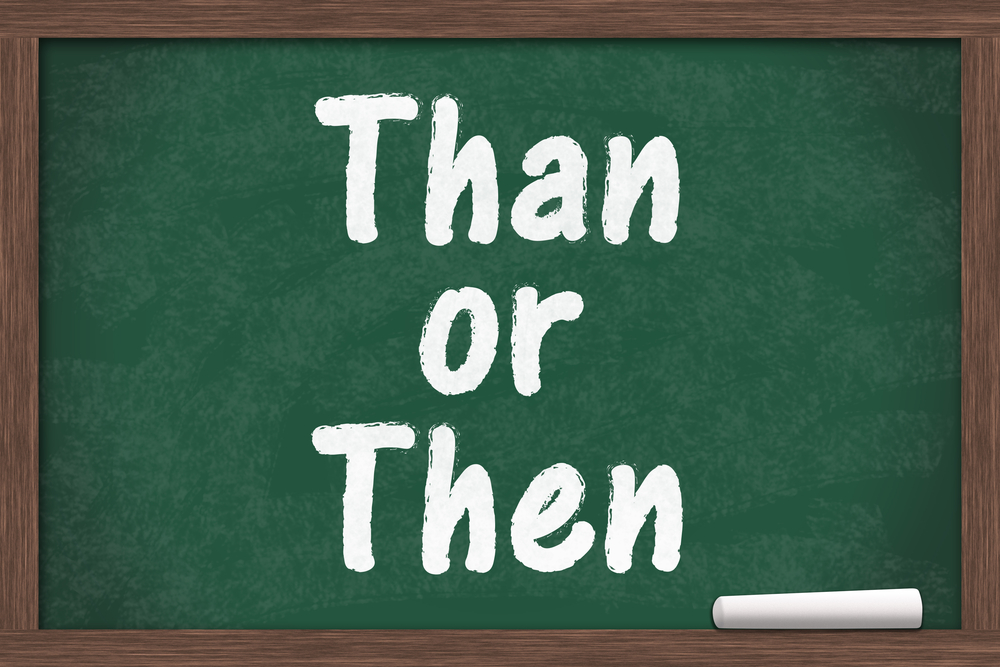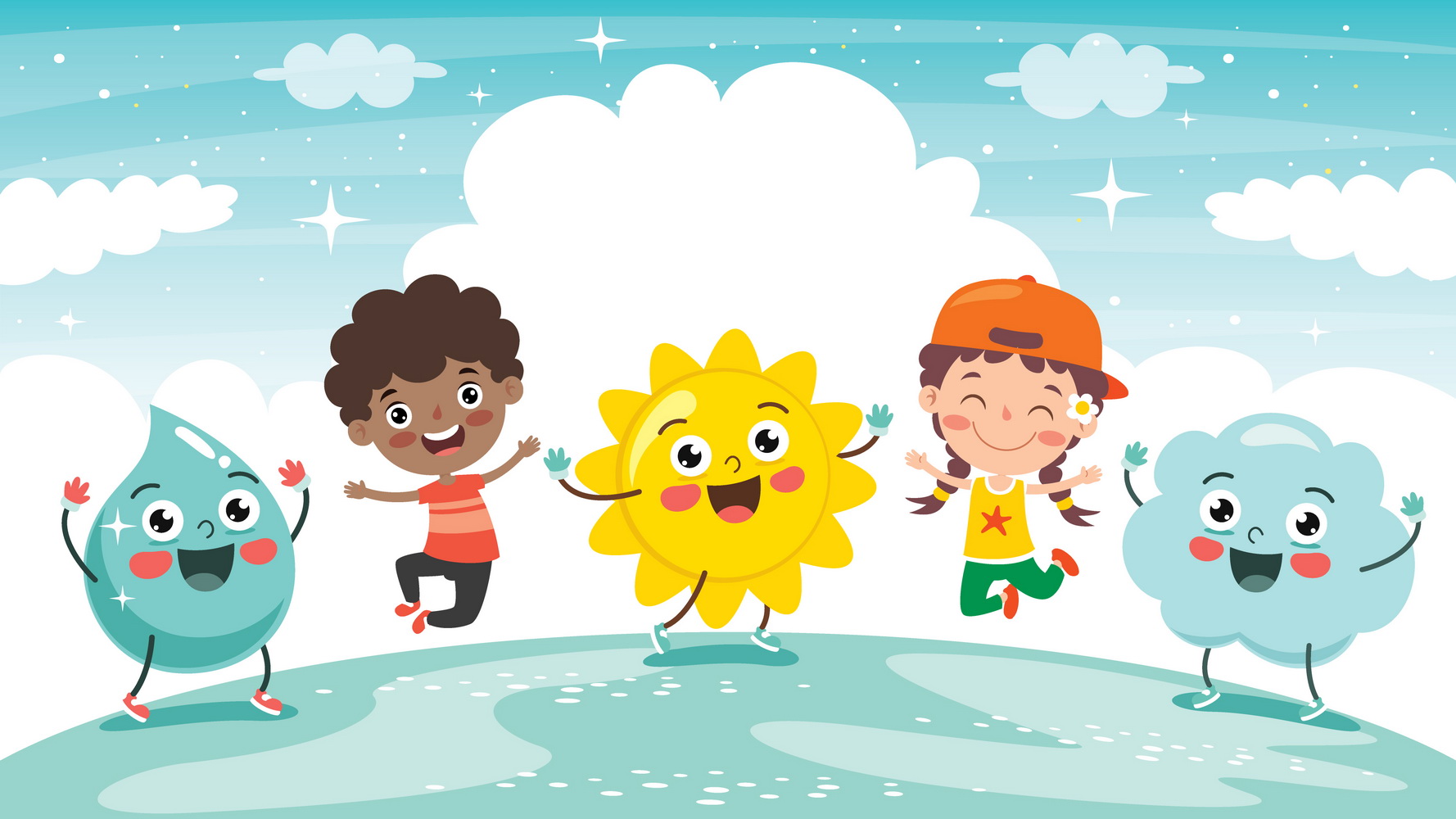Pattern recognition Worksheets for Ages 3-7
30 filtered results
-
From - To
Discover our engaging Pattern Recognition Worksheets designed specifically for children ages 3-7! These worksheets help young learners develop essential cognitive skills by identifying and completing patterns through fun exercises. Your little ones will enjoy a variety of activities, from matching shapes and colors to sequencing objects, promoting critical thinking and observational skills. Perfect for home or classroom use, our worksheets cater to various learning styles and abilities, ensuring an interactive educational experience. Encourage early mathematical understanding and creativity as children enhance their learning through playful engagement. Start building a foundation for future success with our captivating pattern recognition resources!
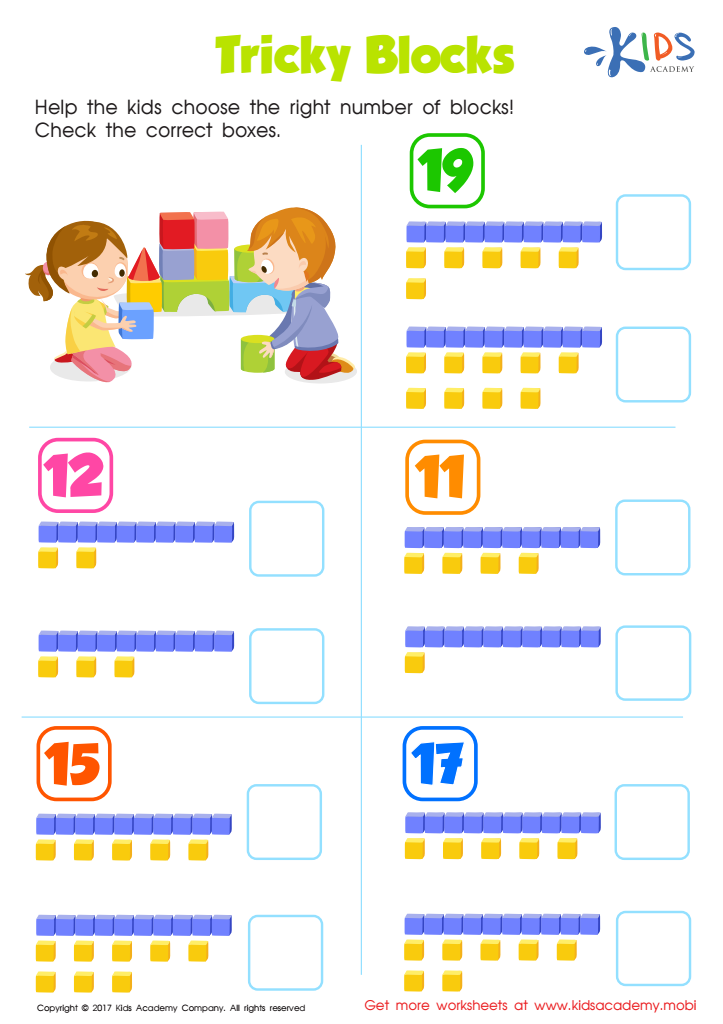

Tricky Blocks Worksheet
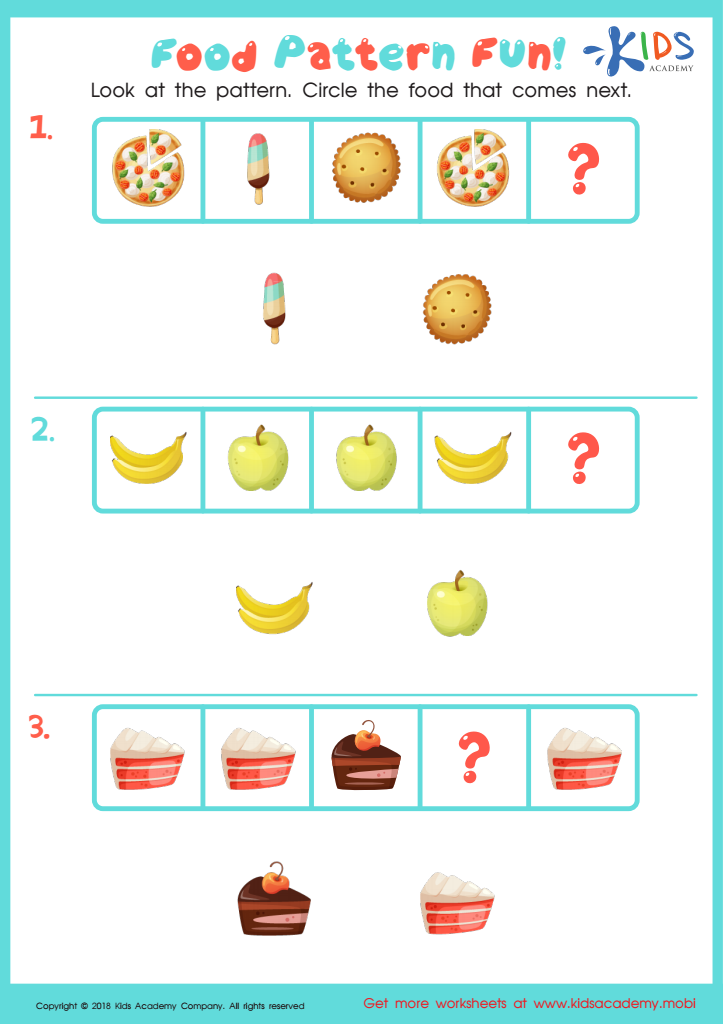

Food Pattern Fun Worksheet
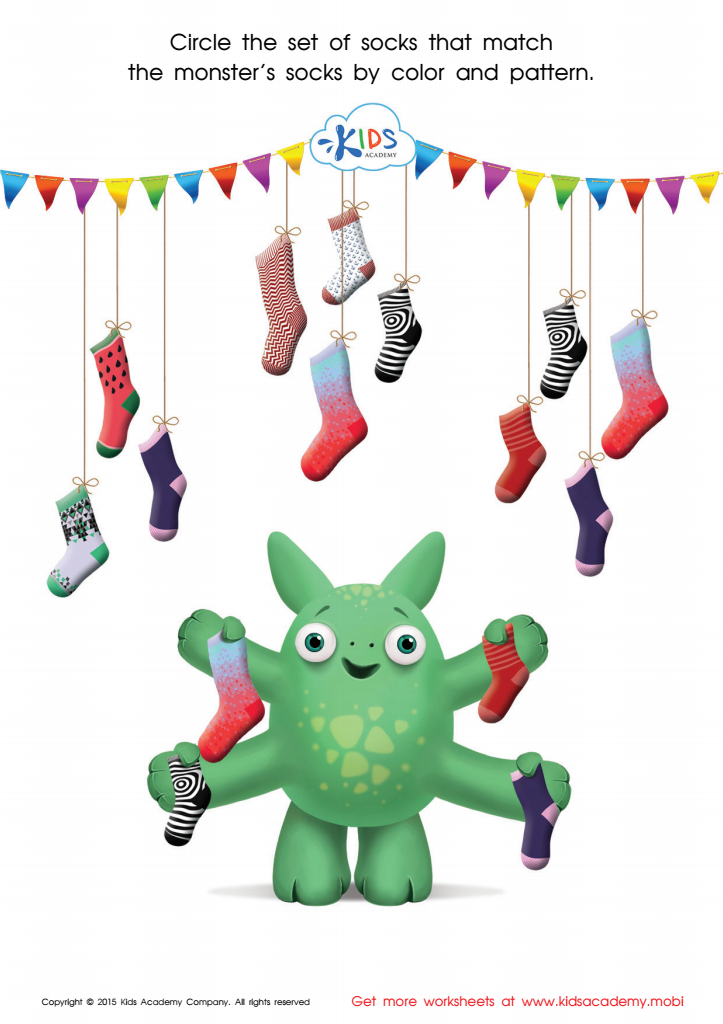

Sort the Monster's Socks Worksheet
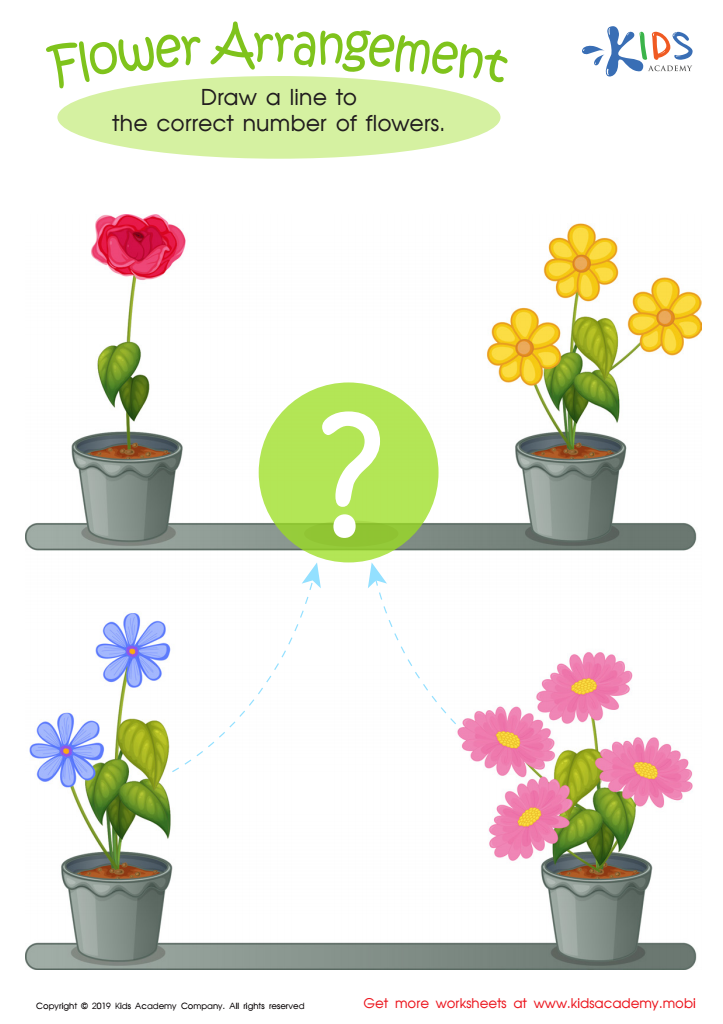

Flower Arrangement Worksheet
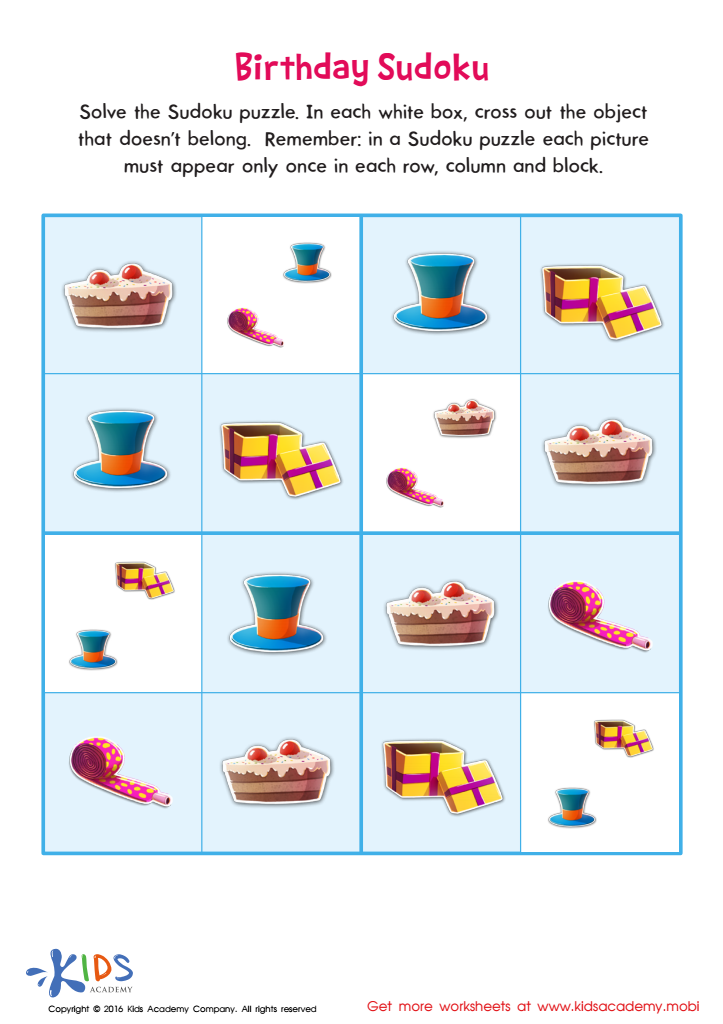

Birthday Sudoku Sorting Worksheet
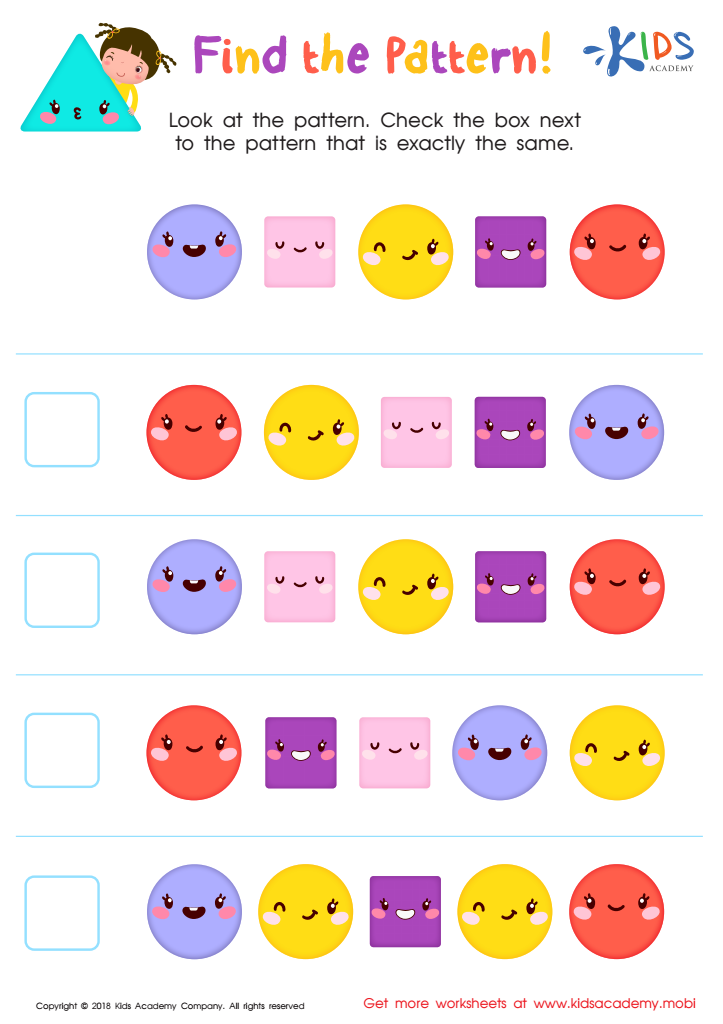

Find the Pattern Worksheet
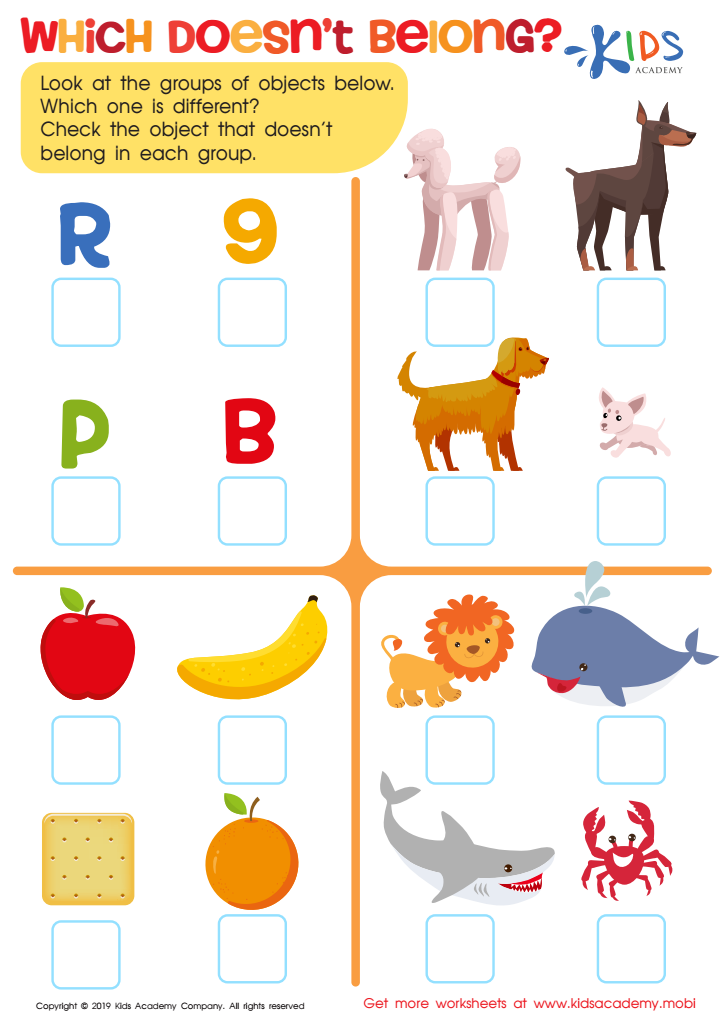

Which Doesn't Belong? Worksheet
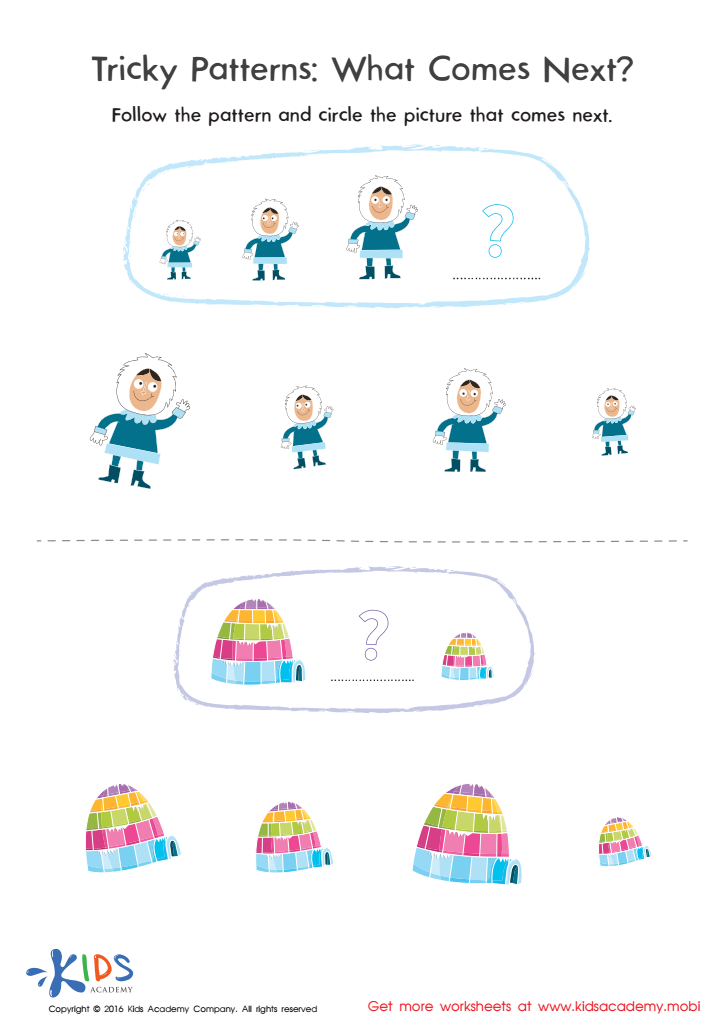

Tricky Patterns Size Worksheet


Make the Same Pattern Worksheet
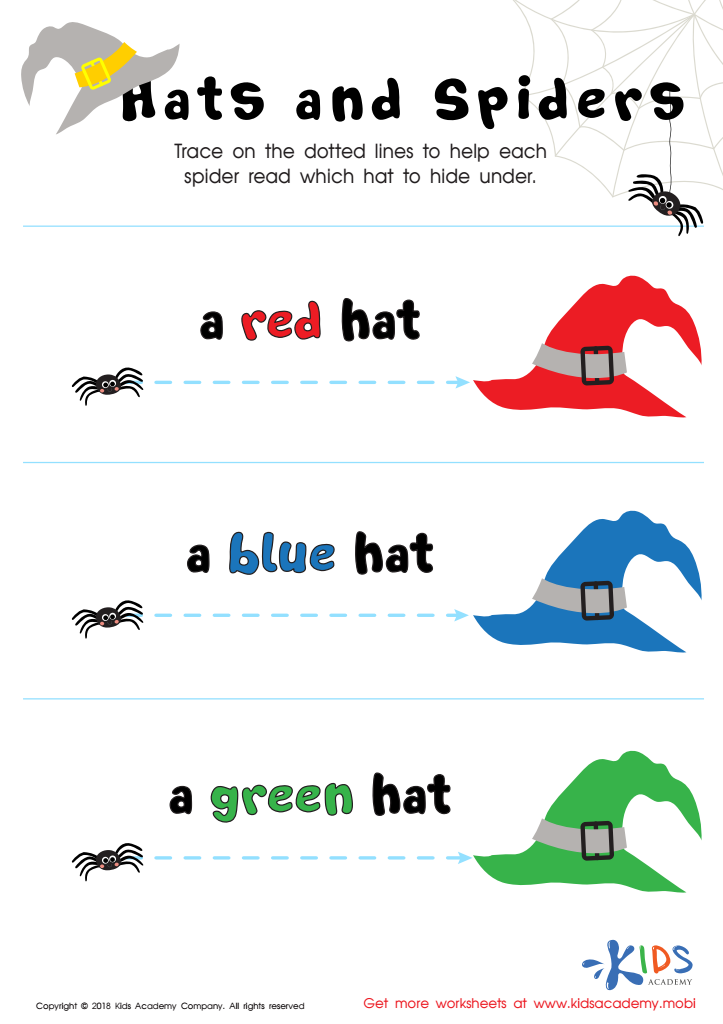

Read from Left to Right: Hats and Spiders Worksheet
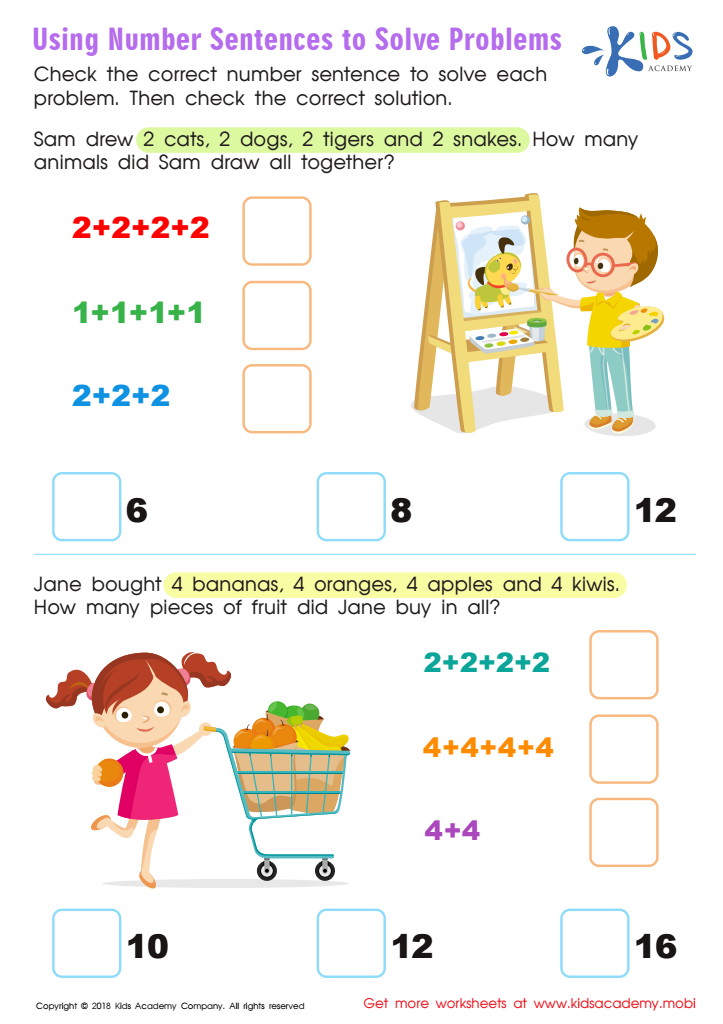

Using Number Sentences to Solve Problems Worksheet
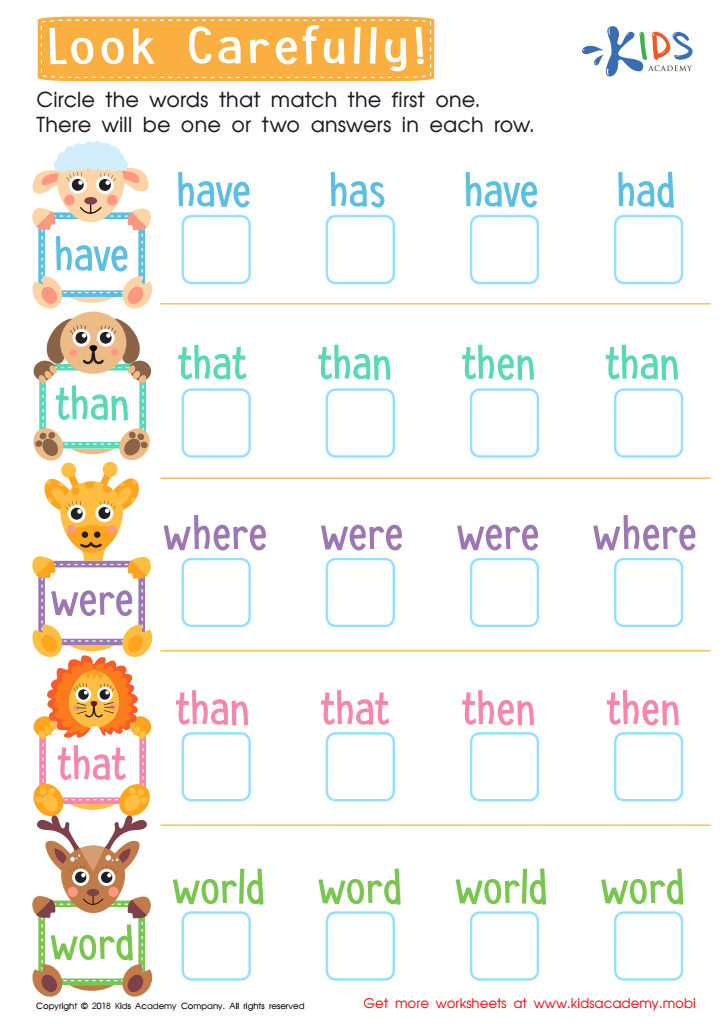

Look Carefully Worksheet
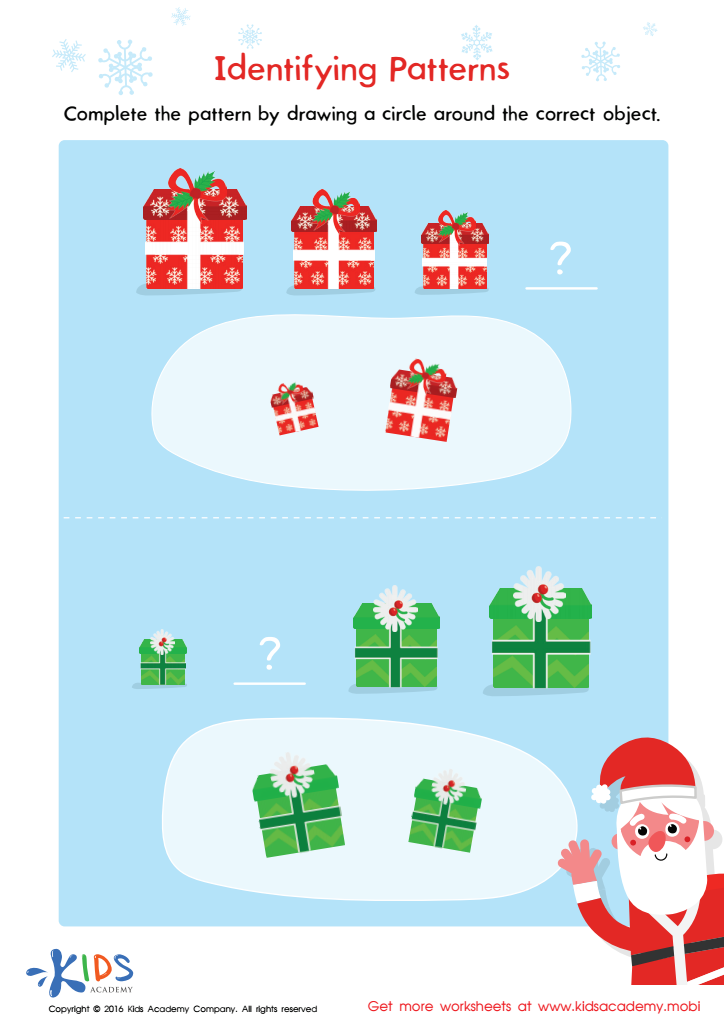

Identifying Patterns Worksheet
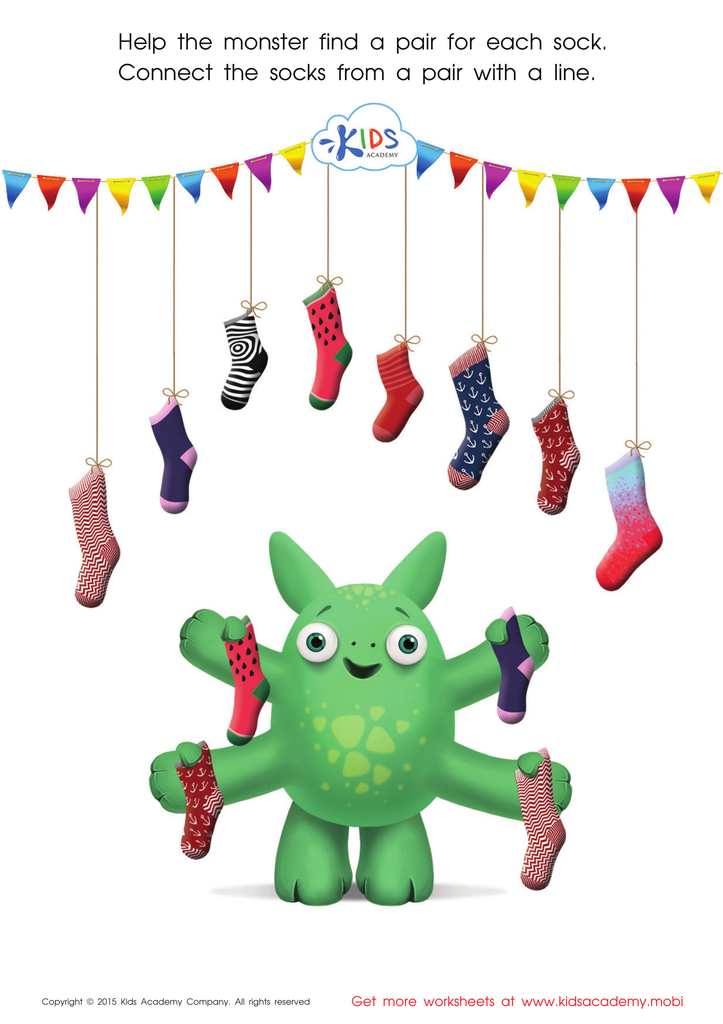

Math Matching Game: Monsterв's Socks Worksheet
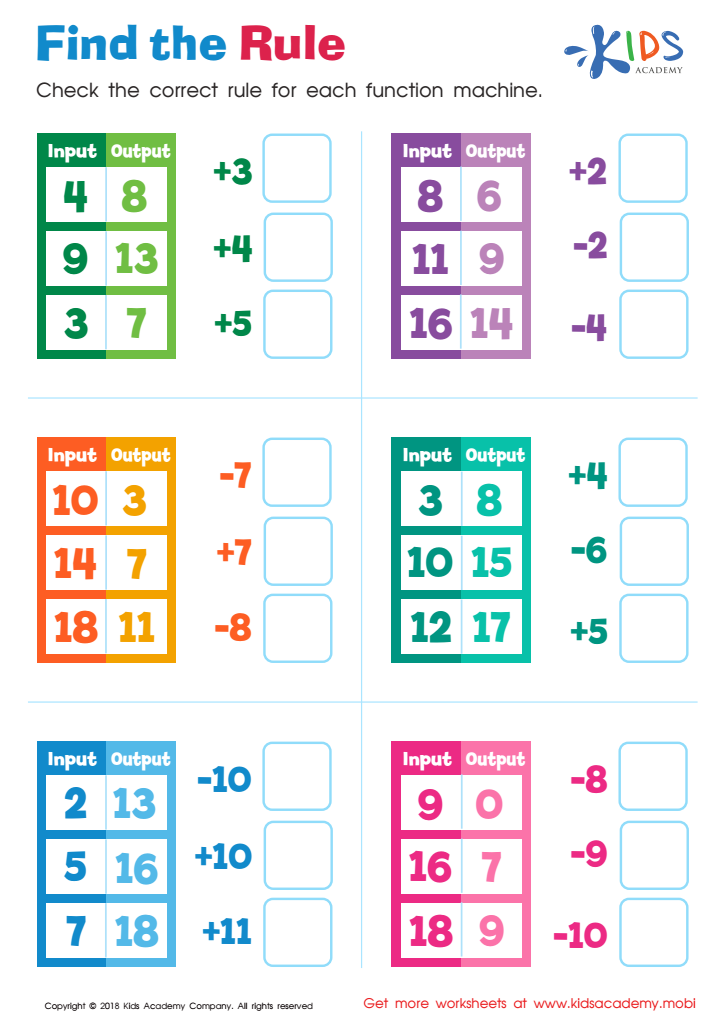

Find the Rule Worksheet


Logic Game Sorting Worksheet
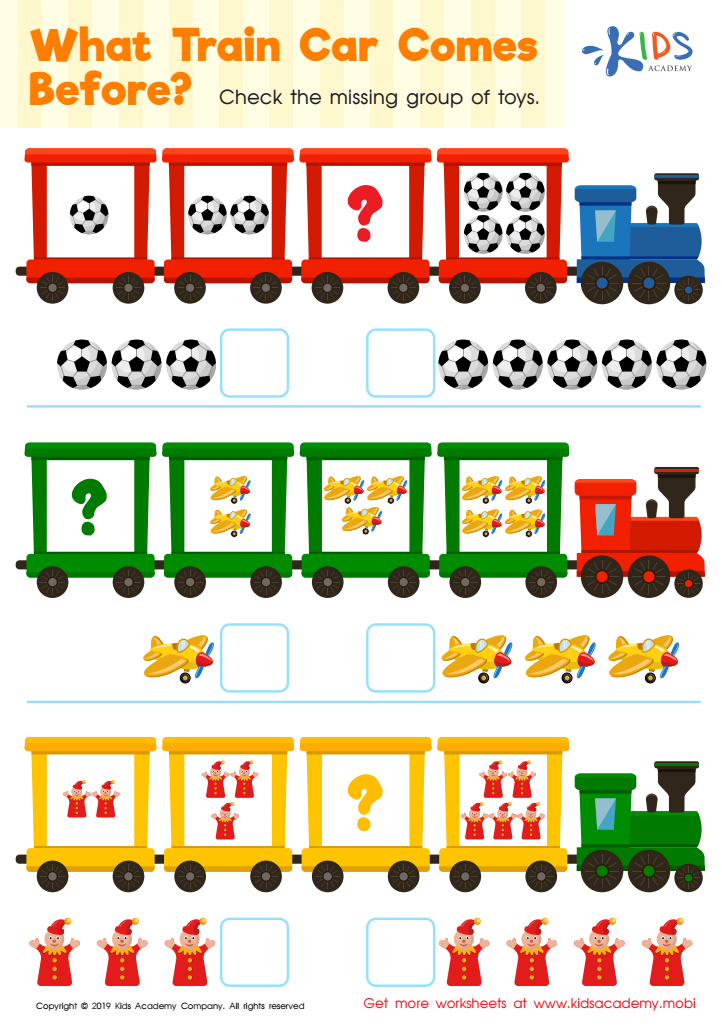

What Train Car Comes Before? Worksheet
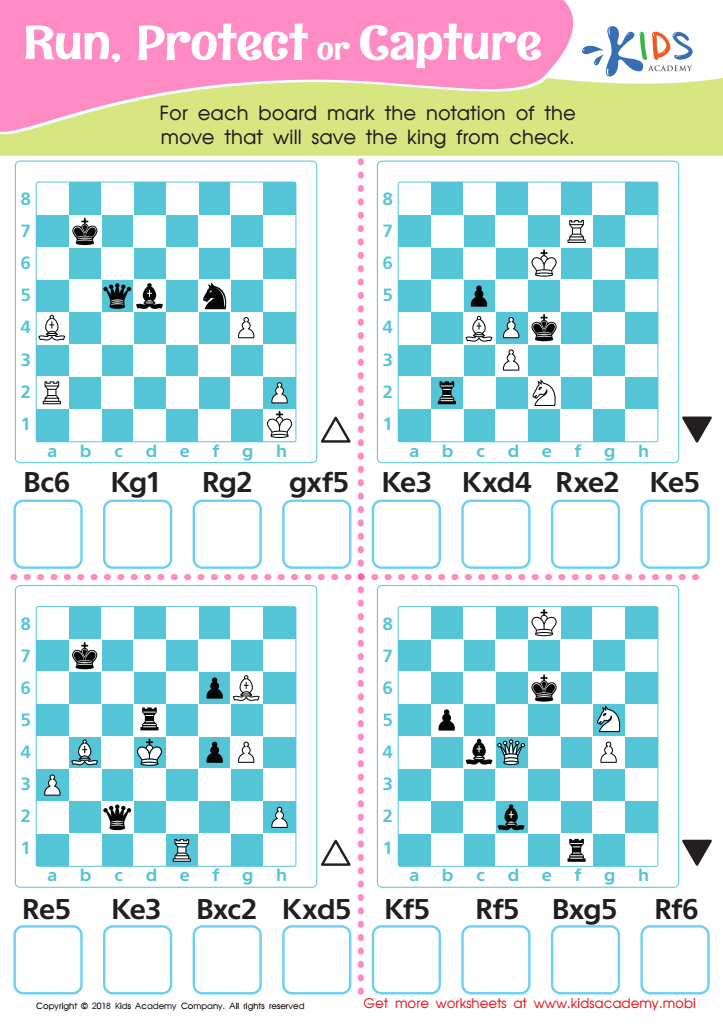

Run, Protect or Capture Worksheet


Christmas: Christmas Tree Printable
Pattern recognition is a fundamental skill that underlies many areas of learning, making it crucial for parents and teachers to prioritize its development in children ages 3-7. At this stage, children are naturally curious and eager to make sense of the world around them. Engaging in pattern recognition activities helps enhance their cognitive skills by improving their ability to identify, analyze, and predict relationships in various contexts.
Recognizing patterns fosters mathematical understanding, as children learn to see sequences, numbers, and shapes in a structured way. Additionally, it plays a key role in literacy development; recognizing rhymes, syllable patterns, or letter sequences aids phonemic awareness. Furthermore, the skill transfers to other areas, such as problem-solving and critical thinking, as children begin to understand how to approach new situations based on their previous experiences.
By encouraging pattern recognition, parents and teachers can cultivate a child’s ability to think logically and creatively. Games, music, arts, and hands-on activities can all be incorporated into learning, making the process enjoyable and interactive. Nurturing this skill not only enhances academic readiness but also helps children develop confidence in their abilities, setting a strong foundation for lifelong learning.
 Assign to My Students
Assign to My Students


